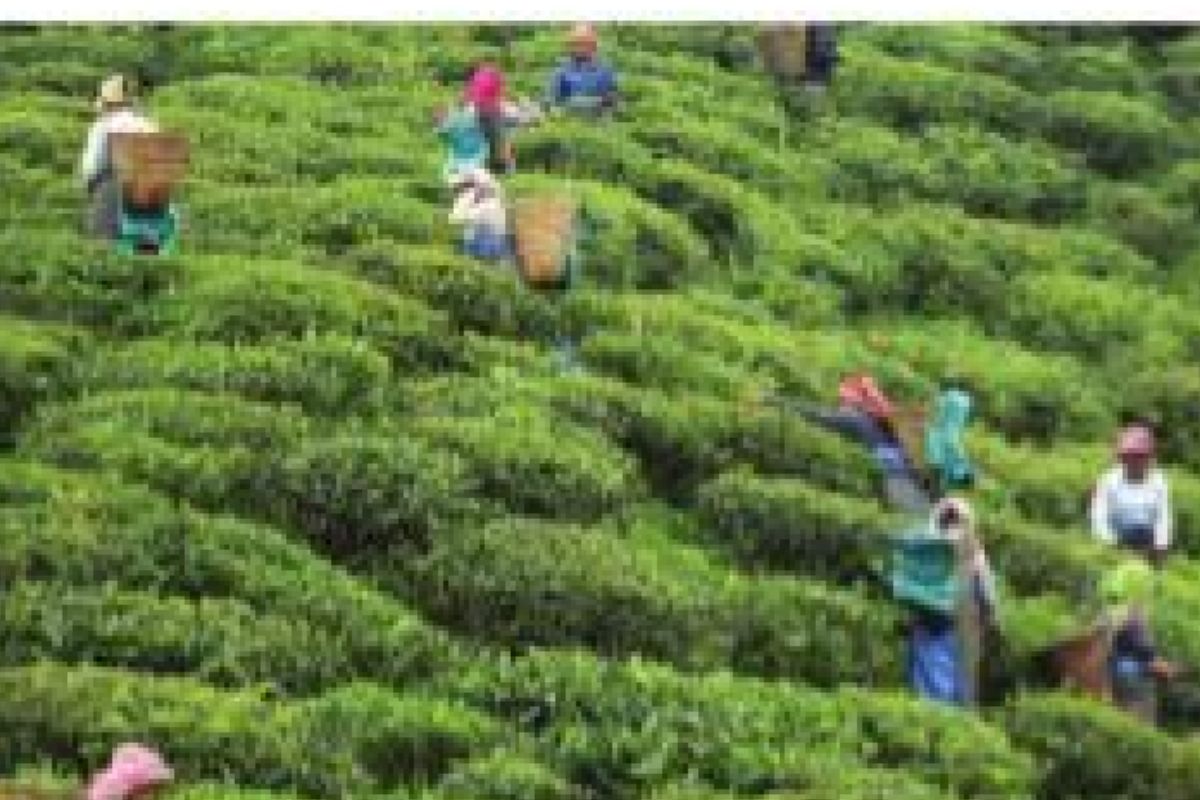Chairperson of the Indian Tea Association (ITA) Nayantara Pal Chowdhury has specifically mentioned ‘paucity of land’ as impacting on the tea production front.
A section of the people, who are against the state government’s decision to allow planters to use 15 percent leasehold land for “other purposes,” including tea tourism, may be encouraged following her “paucity of land” issue to continue their movement.
Advertisement
When a section believes that tea tourism in tea plantations is the only alternative to sustain the tea industry, another section is against it and argues that if it continues, the tea industry in Darjeeling will lose its glory due to “luxurious hotel business” in tea plantations.
Significantly, Joint Forum, a conglomeration of tea workers’ trade unions, has recently announced that it would not allow planters to use even an inch of land for “other purposes” until the government provides land rights (Parjapatta) to tea workers.
Seaking on the viability issue, Ms Pal Chowdhury said the Darjeeling tea industry faces a critical situation.
“Most of the Darjeeling Hills estates are small in size. Being on hilly terrain the cost of production is substantially higher. Due to it quality profile and hilly terrain, mechanization is not possible,” she said in a press release after attending the Annual General Meeting of the Darjeeling ITA on 19 January.
She also urged all stakeholders to jointly formulate a road map for securing long term sustainability for the industry. According to her, Darjeeling tea production had fallen from 8.13 million kg in 2016 to approximately 7 million kg in 2022.
Significantly, at a time when Ms Pal Chowdhury lauded the state government’s social welfare schemes for tea plantations, addressing a public meeting in Alipurduar on the same day the ITA
held its AGM, Chief Minister Mamata Banerjee inaugurated Cha Sundari, a housing scheme for tea workers, and asked her Cabinet colleague Moloy Ghatak, who is the Labour Minister, to continue a “movement” for tea workers, expressing her concerns over non-payment of Provident Fund, Gratuity and ESI facilities.
Chairperson of the Indian Tea Association (ITA) Nayantara Pal Chowdhury has specifically mentioned ‘paucity of land’ as impacting on the tea production front.
A section of the people, who are against the state government’s decision to allow planters to use 15 percent leasehold land for “other purposes,” including tea tourism, may be encouraged following her “paucity of land” issue to continue their movement.
When a section believes that tea tourism in tea plantations is the only alternative to sustain the tea industry, another section is against it and argues that if it continues, the tea industry in Darjeeling will lose its glory due to “luxurious hotel business” in tea plantations.
Significantly, Joint Forum, a conglomeration of tea workers’ trade unions, has recently announced that it would not allow planters to use even an inch of land for “other purposes” until the government provides land rights (Parjapatta) to tea workers.
Seaking on the viability issue, Ms Pal Chowdhury said the Darjeeling tea industry faces a critical situation.
“Most of the Darjeeling Hills estates are small in size. Being on hilly terrain the cost of production is substantially higher. Due to it quality profile and hilly terrain, mechanization is not possible,” she said in a press release after attending the Annual General Meeting of the Darjeeling ITA on 19 January.
She also urged all stakeholders to jointly formulate a road map for securing long term sustainability for the industry. According to her, Darjeeling tea production had fallen from 8.13 million kg in 2016 to approximately 7 million kg in 2022.
Significantly, at a time when Ms Pal Chowdhury lauded the state government’s social welfare schemes for tea plantations, addressing a public meeting in Alipurduar on the same day the ITA held its AGM, Chief Minister Mamata Banerjee inaugurated Cha Sundari, a housing scheme for tea workers, and asked her Cabinet colleague Moloy Ghatak, who is the Labour Minister, to continue a “movement” for tea workers, expressing her concerns over non-payment of Provident Fund, Gratuity and ESI facilities.











